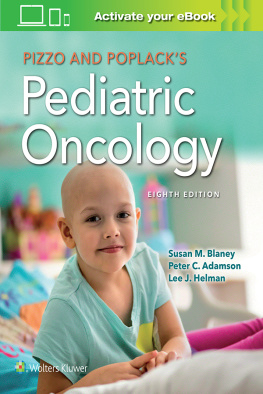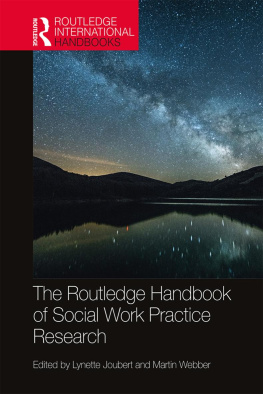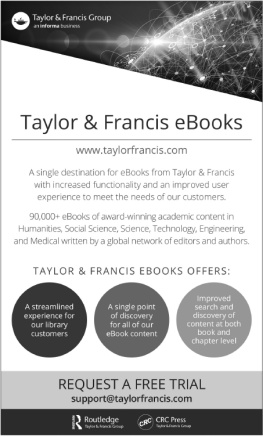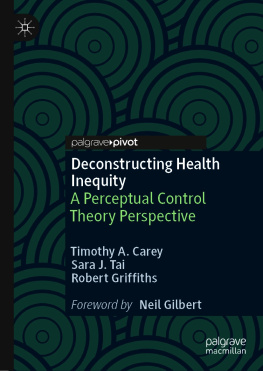CONFRONTING ICARUS: A PSYCHO-SOCIAL
PERSPECTIVE ON HAEMATOLOGICAL MALIGNANCIES
This book is in loving memory of the best friend
I ever had, my husband, Phil.
Confronting Icarus: A Psycho-Social
Perspective on Haematological
Malignancies
PAM McGRATH
Queensland University of Technology, Australia
First published 2000 by Ashgate Publishing
Reissued 2018 by Routledge
2 Park Square, Milton Park, Abingdon, Oxon OX14 4RN
711 Third Avenue, New York, NY 10017, USA
Routledge is an imprint of the Taylor & Francis Group, an informa business
Copyright Pam McGrath 2000
All rights reserved. No part of this book may be reprinted or reproduced or utilised in any form or by any electronic, mechanical, or other means, now known or hereafter invented, including photocopying and recording, or in any information storage or retrieval system, without permission in writing from the publishers.
Notice:
Product or corporate names may be trademarks or registered trademarks, and are used only for identification and explanation without intent to infringe.
Publishers Note
The publisher has gone to great lengths to ensure the quality of this reprint but points out that some imperfections in the original copies may be apparent.
Disclaimer
The publisher has made every effort to trace copyright holders and welcomes correspondence from those they have been unable to contact.
A Library of Congress record exists under LC control number: 99076643
ISBN 13: 978-1-138-71726-8 (hbk)
ISBN 13: 978-1-315-19645-9 (ebk)
Contents
My thanks go to my daughter, Emma, for proof reading the manuscript and for being such an inspiring person to be around.
This work builds on the philosophical critique of biomedicine presented in my previous book, A Question of Choice, in which the myth of Icarus is used as a metaphorical warning against the hubris inherent in an over zealous embrace of biomedical technology. The remedy to the dangers of the present myopic enthrallment with scientific technical progress, it is argued, is to provide a balance to our perspective by incorporating into our response to disease a sophisticated understanding of the human experience of illness. In practical terms, in relation to our response to the topic of this book, haematological malignancies, this means developing a knowledge base in psycho-social oncology that would go some way to matching the voluminous research already available in the scientific/clinical literature.
A start is made to this task by bringing together most of the original research published to date on the topic of the psycho-social aspects of haematological malignancies. The very fact of being able to bring together within the pages of one book the majority of the psychosocial research completed on this topic is a poor comment on the lack of funding and support such research has historically received. However, it is the hope and expectation that the very act of making such a disparate body of work easily available will go some way to stimulating further developments in the area. The next update on this topic, it is hoped, will require many volumes.
AA Aplastic Anaemia
ABMT Autologous Bone Marrow Transplantation
ALL Acute Lymphocytic Leukaemia
AML Acute Myeloid Leukaemia
ANLL Acute Non-lymphoblastic Leukaemia
CLL Chronic Lymphatic Leukaemia
CML Chronic Myeloid Leukaemia
CNS Central Nervous System
BMT Bone Marrow Transplantation
GVHD Graft Versus Host Disease
G-CSF Granulocyte Colony-stimulating Factor
GM-CSF Granulocyte-macrophage Colony-stimulating Factor
HCL Hairy Cell Leukaemia
HD Hodgkins Disease
HDC High Dose Chemotherapy
HLA Human Leukocyte Antigens
LFQ Leukaemia Foundation of Queensland
LP Lumbar Puncture
MC Maintenance Chemotherapy
MDS Myelodysplastic syndromes
MM Multiple Myeloma
NHL Non-Hodgkins Disease
PTSD Post-traumatic Stress Disorder
QOL Quality of Life
RT Renal Transplantation
TBI Total Body Irradiation
URD Unrelated Donors
Today we live in the shadow of one of modernitys most powerful myths: the belief that science and technology will cure all of humanities ills. In spite of the evidence to the contrary, the very attractiveness of this myth ensures it an honoured place in the collective subconscious of Western civilisation.
No more self-evident is the commendation for such mythical thinking then can be observed by the message inherent in the knowledge base that reflects our societys response to the crisis of cancer. For every publication on the human experience of cancer, there would be a thousand fold parallel publications on the scientific, biomedical aspects of these diseases. The message is clear: our response to this set of diseases must be through the accumulation of scientific, biomedical insights and information.
This is particularly so in relation to the focus of this book, which is our response to the care of patients with haematological malignancies. All of the major works completed on the emotional, social, and spiritual aspects of haematological malignancies will be collected together in this small volume as an historical statement of the sum total of the collective wisdom gained from psycho-social research in this area. To do the same for clinical and scientific knowledge would be an impossible feat. Documenting in hard copy the progress in research that has been funded in these areas would most likely fill a room rather than fit within the covers of a single book. Clearly, in western health care priority is given to the investigation of scientific, bio-medical aspects of haematological diseases. The vision is predominantly futuristic, based on the drive for curative success. Only in very recent times has there been a recognition of the need to balance such a scientific bias with a knowledge base that informs our understanding of the experience for patients and their families.
The discipline of psycho-social oncology provides the medium for this counter-balancing message. It will be the central argument of this book that, for a humane response to the challenge that haematological malignancies present to our society, the voluminous biomedical research literature needs to be matched by an equally solid knowledge base of psycho-social research on the present existential plight of these patients and their families.
The present argument builds on the work outlined in my previous book (McGrath, 1998a) that uses the Greek myth of Icarus and Daedalus as a metaphor for the danger inherent in the hubris of science and technology. Daedalus, the chief technician in all Greece, allegedly turned to technology as the answer to all his problems. As the myth goes, when Daedalus and his son, Icarus, were thrown into prison they escaped when Daedalus constructed wings for himself and his son. The wings were made from feathers embedded in wax, so Daedalus cautioned Icarus to fly carefully and to beware of the heat of the sun on the wax. But, exhilarated by the experience of flight, Icarus flew too high. The wax melted, his wings fell apart, and he plunged into the sea. His father, who more wisely was aware of the need to balance the elation associated with the power of technology with caution, took the middle path and reached the other shore.








